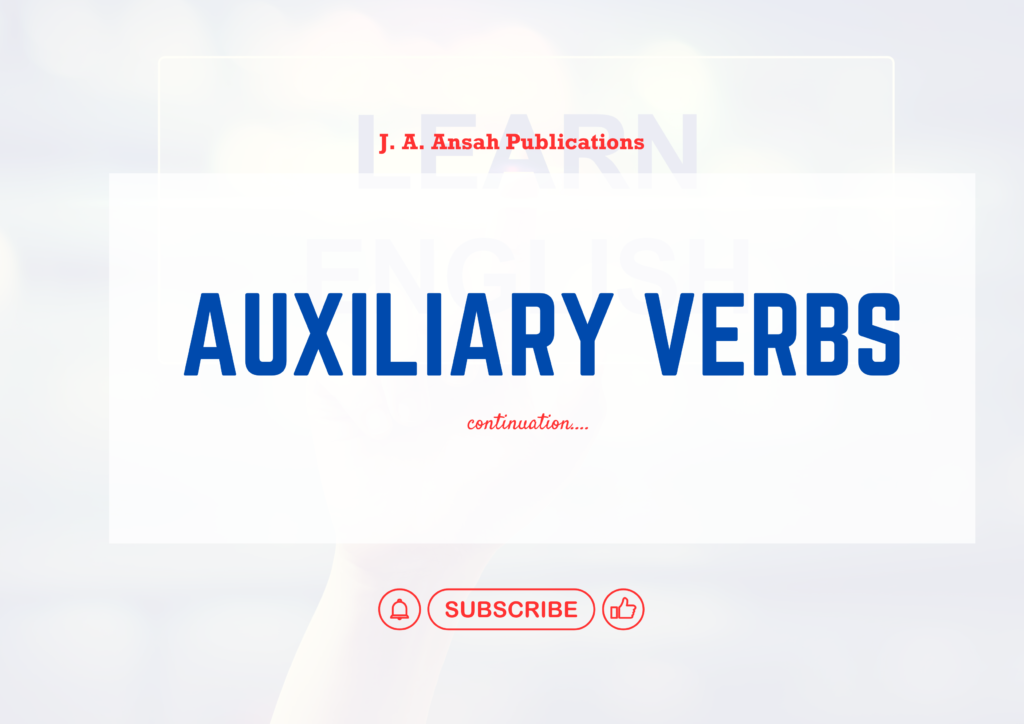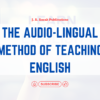Uses of Shall, Will and Should
In Britain, shall is used to express the simple future for first person I and we, as in “Shall we meet by the river?”
Will would be used in the simple future for all other persons. Using will in the first person would express determination on the part of the speaker, as in “We will finish this project by tonight!”
Using shall in second and third persons would indicate some kind of promise about the subject, as in “This shall be revealed to you in good time.” This usage is certainly acceptable in the U.S., although shall is used far less frequently. The distinction between the two is often obscured by the contraction ‘ll, which is the same for both verbs. In the United States, shall is seldom used for anything other than polite questions (suggesting an element of permission) in the first-person:
- “Shall we go now?”
- “Shall I call a doctor for you?” (In the second sentence, many writers would use
should instead, although should is somewhat more tentative than shall.)
In the U.S., to express the future tense, the verb will is used in all other cases. Shall is frequently used in formal situations (legal or legalistic documents, minutes to meetings, etc.) to express obligation, even with third-person and second-person constructions:
- The board of directors shall be responsible for payment to investors.
- The college president shall report financial shortfalls to the executive director each semester.”
Should is usually substituted, nowadays, with would. It is still used, though, to mean “ought to” as in
- You really shouldn’t do that.
- If you think that was amazing, you should have seen it last night.
In British English and very formal American English, one is apt to hear or read should with the first-person pronouns in expressions of liking such as “I should prefer tea” and in tentative expressions of opinion such as:
- I should imagine they’ll vote Conservative.
- I should have thought so.
Uses of Do, Does and Did
In the simple present tense, do will function as an auxiliary to express the negative and to ask questions. (Does, however, is substituted for third-person, singular subjects in the present tense. The past tense did works with all persons, singular and plural.)
- I don’t study at dawn.
- He doesn’t work here anymore.
- Do you attend this school?
- Does he work here? These verbs also work as “short answers,” with the main verb omitted.
- Does he work here? No, he doesn’t work here.
With “yes-no” questions, the form of do goes in front of the subject and the main verb comes after the subject:
- Did your grandmother know Liman?
- Do wildflowers grow in your back yard?
Forms of do are useful in expressing similarity and differences in conjunction with so and neither.
- My wife hates spinach and so does my son.
- My wife doesn’t like spinach; neither do I. Do is also helpful because it means you don’t have to repeat the verb:
- MacDan excelled in language studies; so did his brother.
- Abra studies as hard as his sister does.
The so-called emphatic do has many uses in English.
- To add emphasis to an entire sentence: “He does like kenkey. He really does!”
- To add emphasis to an imperative: “Do come in.” (actually softens the command)
- To add emphasis to a frequency adverb: “He never did understand his mother.” “She always does manage to hurt her father’s feelings.”
- To contradict a negative statement: “You didn’t do your homework, did you?” “Oh, but I did finish it.”
- To ask a clarifying question about a prior negative statement: “Bob didn’t take the tools.” “Then who did take the tools?”
- To indicate a strong concession: “Although the Clintons denied any wrong-doing, they did return some of the gifts.” In the absence of other modal auxiliaries, a form of do is used in question and negative constructions known as the get passive:
- Did Addo get selected by the committee?
- The audience didn’t get peeved by the politician.
Uses of Have, Has and Had
Forms of the verb to have are used to create tenses known as the present perfect and past perfect. The perfect tenses indicate that something has happened in the past; the present perfect indicating that something happened and might be continuing to happen, the past perfect indicating that something happened prior to something else happening. Refer to the section on Verb Tenses for additional clarification.
To have is also in combination with other modal verbs to express probability and
possibility in the past.
- As an affirmative statement, to have can express how certain you are that something happened (when combined with an appropriate modal + have + a past participle): “Georgia must have left already.” “Dramani might have known about the gifts.” “They may have voted already.”
- As a negative statement, a modal is combined with not + have + a past participle to express how certain you are that something did not happen: “Dramani might not have known about the gifts.” “I may not have been there at the time of the crime.”
- To ask about possibility or probability in the past, a modal is combined with the subject + have + past participle: “Could Dramani have known about the gifts?”
- For short answers, a modal is combined with have: “Did Dramani know about this?” “I don’t know. He may have.” “The evidence is pretty positive. He must have.”
- To have (sometimes combined with to get) is used to express a logical inference:
- It’s been raining all week; the basement has to be flooded by now.
- He hit his head on the doorway. He has got to be over seven feet tall!
- Have is often combined with an infinitive to form an auxiliary whose meaning is similar to “must.”
- I have to have a house like that!
- She has to pay her own tuition at school.
- He has to have been the first scholar to try that.
MODAL AUXILIARIES
Other helping verbs, called modal auxiliaries or modals, such as can, could, may, might, must, ought to, shall, should, will and would, do not change form for different subjects. For instance, try substituting any of these modal auxiliaries for can with any of the subjects listed below. I, you (singular), we you (plural) they can write well.
Uses of Can and Could
The modal auxiliary can is used
- to express ability (in the sense of being able to do something or knowing how to do something): He can speak Russian but he can’t write it very well.
- to express permission (in the sense of being allowed or permitted to do something): Can I talk to my friends in the library waiting room? (Note that can is less formal than may. Some writers, however, will object to the use of can in this context.)
- to express theoretical possibility: Japanese automobile makers can make better cars if they think there’s a profit in it.
The modal auxiliary could is used
- to express an ability in the past: I could always beat you at tennis when we were kids.
- to express past or future permission: Could I bury carcass in your back yard?
- to express present possibility: We could always spend the afternoon just sitting around talking.
- to express possibility or ability in contingent circumstances: If he studied harder, he could pass this course.
In expressing ability, can and could frequently also imply willingness: Can you help me with my assignment?
Can versus May
Whether the auxiliary verb can can be used to express permission or not — “Can we leave the classroom now?” [“I don’t know if you can, but you may.”] — depends on the level of formality of your text or situation.
Can is, formally, for ability or power to do something, may for permission to do it. Nowadays, can can be used in almost any situation to express or ask for permission. Most authorities, however, recommend a stricter adherence to the distinction, at least in formal situations.
Uses of May and Might When used in the context of granting or seeking permission, might is the past tense of may. Might is considerably more tentative than may.
- May I leave class early?
- If I’ve finished all my chores and I’m really quiet, might I leave early?
In the context of expressing possibility, may and might are interchangeable present and future forms and might + have + past participle is the past form:
- She might be my advisor next semester.
- She may be my advisor next semester.
- She might have advised him not to take physics.
Avoid confusing the sense of possibility in may with the implication of might, that a hypothetical situation has not in fact occurred. For instance, let’s say there’s been a helicopter crash at the airport. In his initial report, before all the facts are gathered, a newscaster could say that the pilot “may have been injured.” After we discover that the pilot is in fact all right, the newscaster can now say that the pilot “might have been injured” because it is a hypothetical situation that has not occurred. Another example: a body had been identified after much work by a detective. It was reported that “without this painstaking work, the body may have remained unidentified.” Since the body was, in fact, identified, might is clearly called for.
Uses of Will and Would
In certain contexts, will and would are virtually interchangeable, but there are differences. Note that the contracted form ‘ll is regularly used for will. Will can be used to express willingness:
- I’ll pay the bill if you remind me.
- We’re going to the stadium. Will you join us? It can also express intention (especially in the first person):
- I’ll do the editing later. It is also used for prediction:
- Specific: The conference will be over soon.
- Timeless: Excessive sweeping will cause erosion.
- Habitual: The river will overflow its banks every spring.
Would can also be used to express willingness:
- Would you please take off your sandals?
It can also express insistence (rather rare, and with a strong stress on the word “would”):
- Now you’ve ruined everything. You would act that way. Would is also used for characteristic activity:
- Customary: After work, he would walk to his home in Beijing.
- Typical (casual): She would cause her father to spend, every time. In a main clause, would can express a hypothetical meaning:
- She would weigh a ton if I let her eat what she wants. Finally, would can express a sense of probability:
- I hear a horn. That would be the four o’clock bus.



